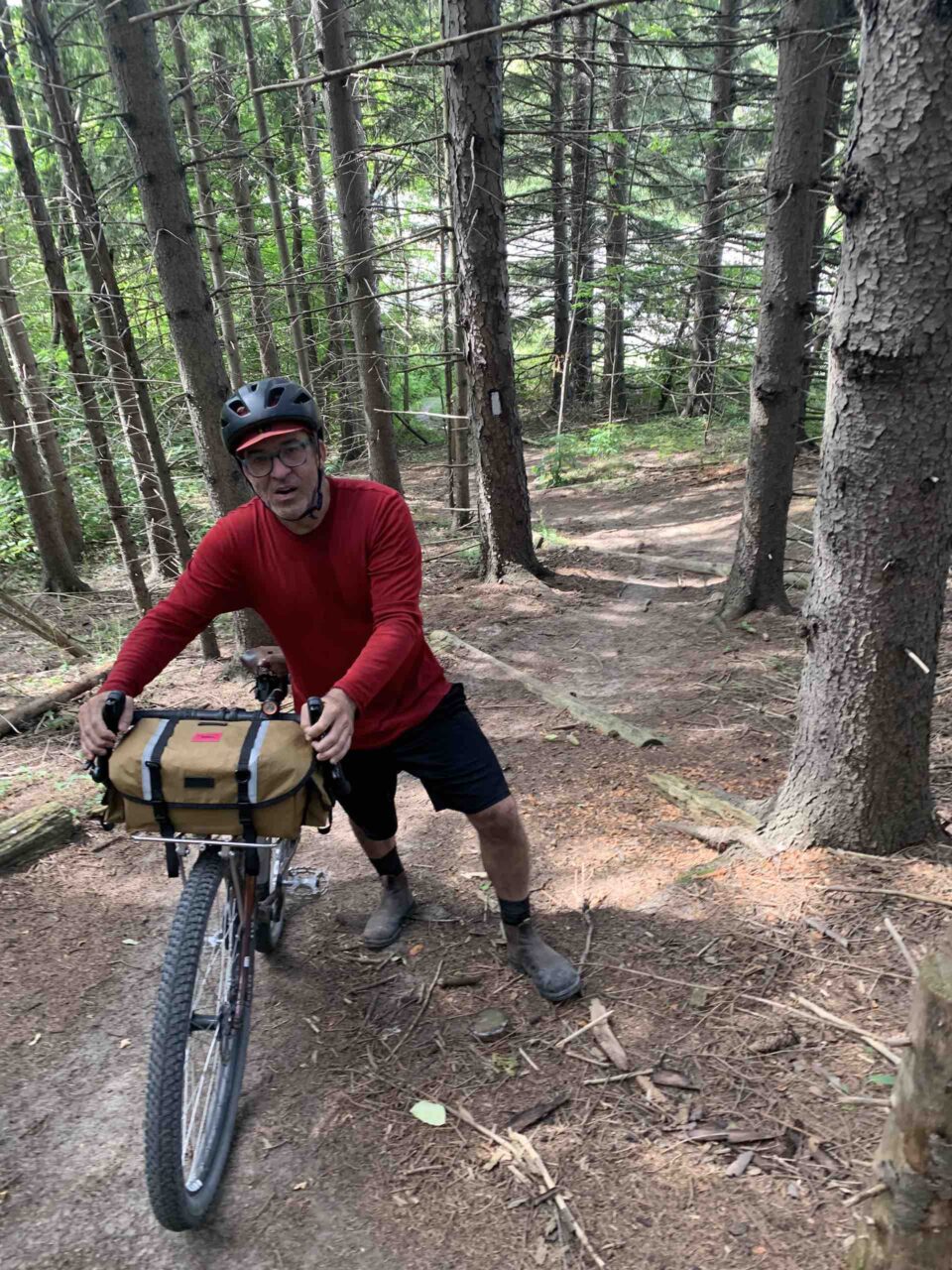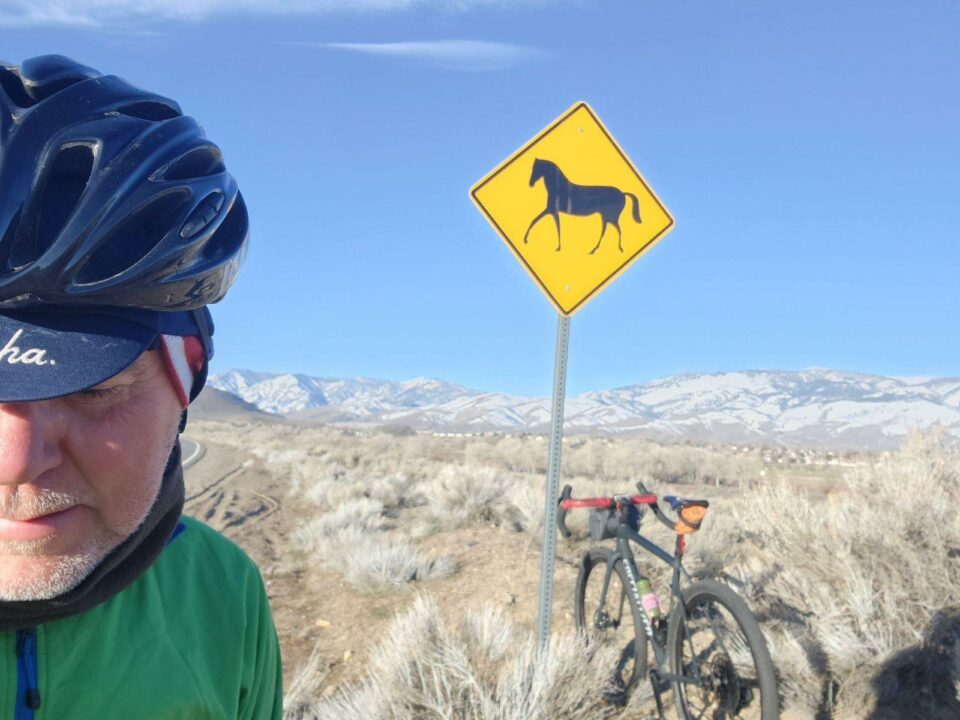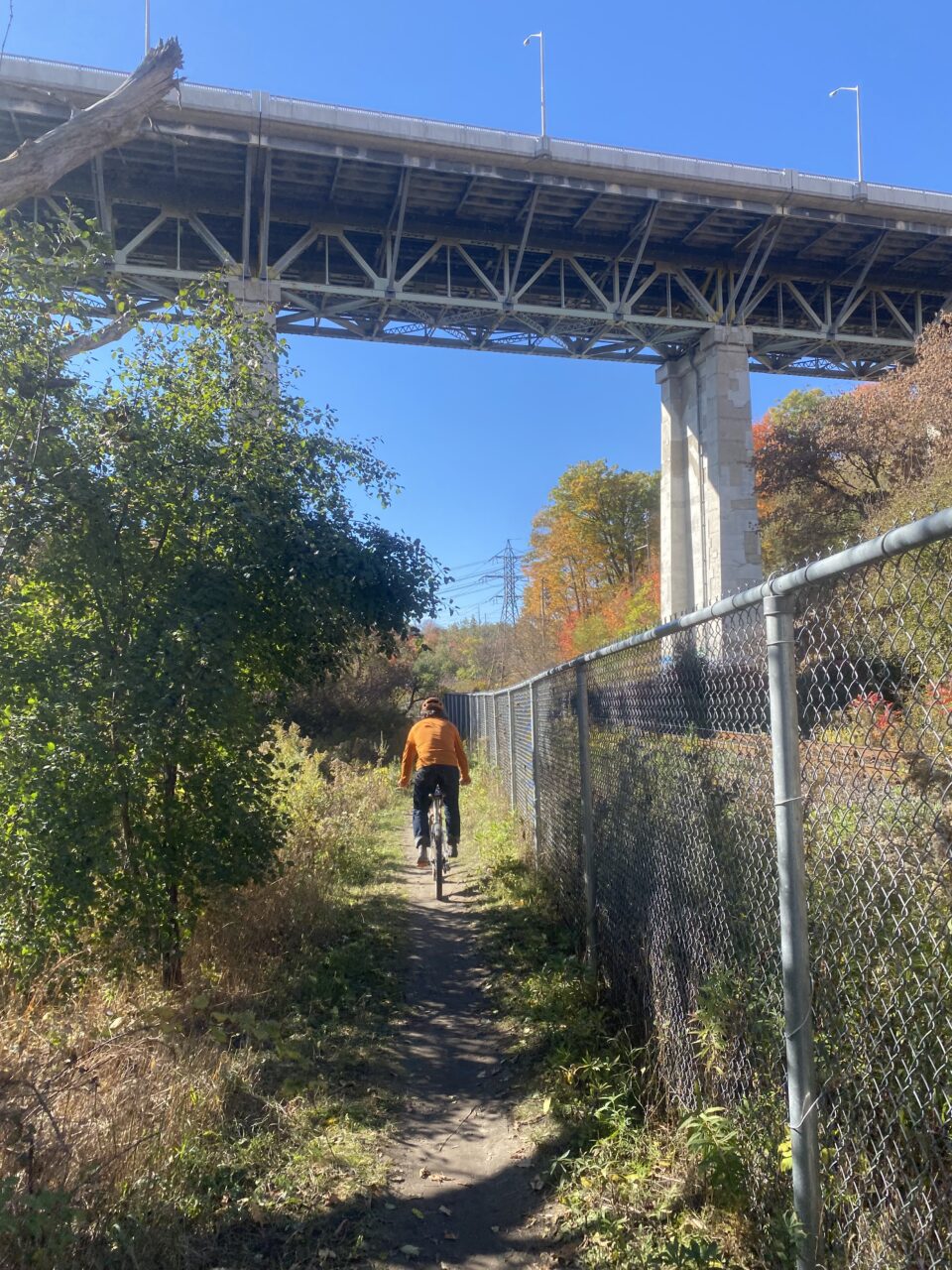You could never tell that Joe Pernice and Jason Lytle hadn’t ever met before, even virtually. Because from the way the conversation flows between the pair—from the moment their Zoom call connects—it’s like they’re old friends. As two prominent musicians traversing the same alt-rock spheres—Pernice of the Boston-formed, Toronto-based Pernice Brothers; Lytle of Modesto, California’s Grandaddy—they were very aware of each other, and are occasionally in contact through text, but they’ve never actually had a full conversation before. Until now.
The reason for that isn’t to do with music, either—despite the fact that both artists released sublime new albums this year (Grandaddy’s Blu Wav came out back in February, Pernice Brothers’ Who Will You Believe in April). Rather, it was their shared love of cycling. And not just casual cycling, either—both are serious practitioners of the pastime. It’s something that feels very at-odds with their image as writers of (mainly) forlorn music, but after this conversation, it’s almost as if music, instead, is the pastime that complements their dedication to riding.
The following is a small fraction of the pair’s fascinating chat about a most unlikely mutual admiration.
So the whole premise of this conversation came about because apparently you both bike a lot.
Joe Pernice: I do. I don’t know why. I always liked bikes when I was younger, and then when everyone was holed up in COVID I just got heavily into it. I was losing my mind, because in Canada the winter is oppressive. I was thinking, “Shit, how am I going to get through the winter?” Because I figured you had to stop. But then I fell in with some friends who never stop—they bike all year—and that changed everything. I was like, “Holy Christ, it’s January and I still feel good.” So that’s how it came for me. What about you, Jason?
Jason Lytle: I’ve heard it said that for a lot of kids—and I’m included here—that it’s like the first example of freedom that you have. I grew up out in the country, and once I got the bike it was like extending the perimeter—you could go way further, see a lot more. It was the first version that I had of that, and even to this day I just tap back into that. Even just on the silliest, shortest little rides, I never forget that feeling of independence that I get with just being on a bike.
Pernice: You’re California born and bred, right?
Lytle: Yeah. It’s a very specific part of California, though—Central Valley, which is where nobody goes when they come to California.
Pernice: I’m a couple years older than you, but I raced BMX in, like, ’79, ’80—those were the first years I got into racing bikes in Massachusetts. We used to read magazines about Southern California, and everything seemed like it was just another world. When you’re 12, California might as well be the moon.
“Even just on the silliest, shortest little rides, I never forget that feeling of independence that I get with just being on a bike.” — Jason Lytle
Lytle: The skateparks were still around back then, too. Do you remember Tinker Juarez?
Pernice: I sure do, yeah. He raced for Mongoose on BMX and became world champ.
Lytle: He still races. He’s still killing it, and it’s a matter of time before I run into him, because he does all these training rides about 20 miles away from here on all these long extended roads.
Pernice: He’s racing mountain bikes still? Stu Thomsen, who is the biggest BMXer of all time, still races BMX.
Lytle: That’s insane.
Pernice: Those were my heroes growing up—hockey players, BMX racers, and motocross racers. I remember I got out of BMX and started riding road bikes and did some little criterium races and club races and stuff. You were talking about freedom, and I remember one day I was riding with this woman who was the friend of one of my older sisters. She was on the Olympic crew team, and she was visiting her parents, and she would cycle to stay in shape. I must’ve been 15 at the time and she took me on this ride and she kicked my ass. But I remember riding down this little ski hill outside of Boston and I came blasting through a shady tunnel of trees and it was so unbelievably cool in the summer, and that feeling was one of the most incredible things. I still think about that. If I’m stressed out or can’t sleep at night, I go back to that very moment, and I can feel it. It was so hypnotic.

Lytle: I was dabbling in BMX, but also skateboarding at the same time. I got my first skateboard when I was five, and always had one from five to eight. I never quite fully got out of it, but I [got back into it at] 15 again and it just consumed my life. Apparently I was one of those people who needed something to be hyper-focused on and be all-consuming. I got to the point where I was skating in contests with the guys I looked up to in the magazines, making my way up the ladder. I had loads of injuries over the years, but I had one big final catastrophic one where the big knee ACL snapped in half, and that ended it. And it’s weird how life plays out—I kind of shifted my need to be obsessed over something from skateboarding into music.
But in a sort of desperate attempt to rehab my knee and get it stronger, I got really into riding again, because I knew that was how I was going to build my leg back up. I was told that you could live with this injury without the surgery, but you had to really build up all the surrounding muscles around the knee. Eventually, I did get the surgery, which is good, but that’s what brought bikes back into my life again and got me into longer distances. Always kind of living on the outskirts, there were lots of canal roads and country roads, and I got really into the meditative part of just being on a bike for extended periods of time.
Pernice: That’s cool. I went right from bikes to music, too. I rode through college, but I got into music right around 15 or 16 and there was no turning back. I was thinking lately, when mountain bikes started to become really popular around ’86, ’87, you either had a road bike or a mountain bike. People were doing stuff in between, but they didn’t make bikes for the in-between. One of the bikes now, I’d ride a century on the road and then do 90 miles in the dirt on it. But you couldn’t do that back then. I was talking to a buddy of mine who owns a bike shop, and I was like, “Shit, if they had the kind of bikes and gear when I was 15 or 16 that they have now, I might not have played music. I might have just become a total freak for bikes.”

“Shit, if they had the kind of bikes and gear when I was 15 or 16 that they have now, I might not have played music. I might have just become a total freak for bikes.” — Joe Pernice
Do you get the same kind of release from writing songs that you get from cycling?
Pernice: I get a similar thing writing or recording a song that I do, say, working on bikes. It’s probably an attention deficit thing. For me, writing songs and recording, and working on bicycles or mechanical things, I get hyper-focused where the time just vanishes and it’s six hours later. You haven’t eaten, you haven’t taken a leak, and your leg fell asleep.
Lytle: That’s the key for me right there—time stands still to where there’s an absence of time, when it’s just like the clock no longer exists. That’s a sweet spot. Some people call it the flow state.
Pernice: I do get that on a long ride, if it’s a road ride where you’re just plugging ahead, where your breathing gets into a rhythm. What I get then—which I don’t really get in making music—is where I don’t think about anything, where my brain just shuts off. That’s why I’m addicted to it.
Lytle: I was kind of a latecomer to the meditation thing, but my little argument is that I get a lot of that out of riding my bike long distances. I still run a bit, but when I got pretty into distance running and these endurance events, I read a multitude of books on the subject, and one of them referred to it as “dog brain,” and I fucking love that. A dog is just running, he’s not thinking about any of that. He’s just thinking about how stoked he is. He’s not thinking about what he has to do after the run or what happened before the run—he’s just there in this moving meditative state. And it’s addictive. Part of you just wants to keep living in that sort of floating, nothing-else-fucking-matters state.

Pernice: I’ve done meditation, too, and the first thing besides getting in a comfortable position that they tell you is how to breathe so you get into this rhythm. That’s part of the thing about cycling, for me, and I’m sure it would be the same for running. Part of meditation is the way your breathing regulates. So you’re already halfway there, just because the rhythm of your breathing takes over. The additional oxygen to your brain probably doesn’t hurt, either.
Lytle: There is that element too, which I’m guessing you appreciate as well because we like the tinkering and the minutiae and the gear and stuff—it’s almost that thing of the airline pilot who’s continually checking in. Because you do have the ability to get into that meditative flow state, but you’re also checking in with all these little things. That’s half the fun as well.
Pernice: I agree. Anyway, you got any trips planned?
Lytle: Just a big 290-mile bike thing that I’m doing in three weeks.
Pernice: Are you going to camp out or are you going to credit-card it?
Lytle: No, dude, it’s mostly remote. It’s all mountainous. I just started working on the logistics this morning, and I did find a teepee glamping spot, but it’s still pretty scrappy. It’s wild planning for that stuff—like knowing how to ration your water, where to resupply, and how to pace yourself. I think it’s going to take me four days and change.
“It’s addictive. Part of you just wants to keep living in that sort of floating, nothing-else-fucking-matters state.” — Jason Lytle

Pernice: For what? Three hundred miles?
Lytle: Well, yeah. Three hundred miles, but it’s the 33,000 feet of climbing with a loaded bike.
Pernice: That’s fucked up.
Is there a particular reason you’re doing this, or is it just for the sake of it?
Lytle: David Bowie has a famous quote that’s something about wandering out into the water and right when you get to the point where you can’t quite feel your feet, where it’s just a little too deep and it’s a little too scary, that’s when you know you’re in a good place. I have years of doing smaller versions of things. I’m not doing this out of the blue. I have all the gear and loads of experience, and I do like doing it—but each time it happens again, for me to get super excited about the thing, it has to be right on the verge of not even knowing if I can pull the thing off.
Pernice: I’m riding and camping out this Thursday, actually. It’s Canada, so it’s spring now, but it’s still snowy. We’ll bike out somewhere and kind of do a wild, sneaky camp somewhere. And Thursday looks like probably freezing, but that’s a treat here just to be below freezing. Last time we did it was -15 Celsius.
Lytle: That shit takes a lot of coffee to do.
Pernice: And when you have to take a leak at 4 a.m. and you have to get out of your bag and then get back in, that’s when it gets a little interesting. But anyway, we made records too, right?
I was going to say, you’re both destroying my perception of you based on your music. This seems wildly intense.
Pernice: It is intense! It’s a lifestyle thing, for sure. And maybe to bring it back around, when I write songs, I’m definitely going somewhere, and maybe having another thing that has nothing to do with it is really regenerative and enjoyable. In a way, music is an emptying of things, and biking, for me, is a filling back up.
Lytle: I’ve always felt like they work hand-in-hand. I get a lot of quality problem-solving done—sometimes all I’ve gotta do is just shut it all down, leave the house, and jump on the bike, and I can usually guarantee within 40 minutes I figure a lot of things out on the bike.
Pernice: Physically I might come back and not always feel spectacular, but mentally, I don’t think I’ve ever come off a bike feeling worse than when I got on. I might crash and bust up or something, or pull something, but mentally I always feel better after having done it.
Lytle: I agree. The only exception is there are some fucking idiots, or a traffic situation. It’s a potential buzzkill—you can spend two hours on the most epic ride, and then the 10 minutes where you’re off the trail back to the house, something could go down and it has the potential for erasing all the good that it did.
“Maybe having another thing that has nothing to do with music is really regenerative and enjoyable. In a way, music is an emptying of things, and biking, for me, is a filling back up.” — Joe Pernice
Pernice: I have to go on a designated bike path to get to some of the trails I mostly ride, and there’s one section that goes right through downtown Toronto. And it’s mayhem. It’s the most dangerous place I’ve ever ridden in my life. Never mind barreling down a fucking hill in the dirt somewhere—just riding on a bike path at five in the afternoon when everyone’s getting off work, it’s the most dangerous place in the world.
Lytle: It’s a whole other type of invigoration.
Pernice: I almost got hit by a cop on a horse! But that’s that. Anyway, what can we say about music? A music bike tour might be kind of cool. We’ve talked about it.
Lytle: I still like that idea. And I think it’s funny what an afterthought the show aspect of it was.
Maybe you could make a collaborative cycling concept album along the way.
Pernice: That would interfere with the riding, I think. But you never know—record companies would love that. I just played a show in a bike shop, which was great. It held about 100 people. It wasn’t a massive show, but it was so fun playing around all the bikes. I’d love to do a bike shop tour, actually. I don’t care about the money! FL

Joe Pernice / photo by Dan Springer.







